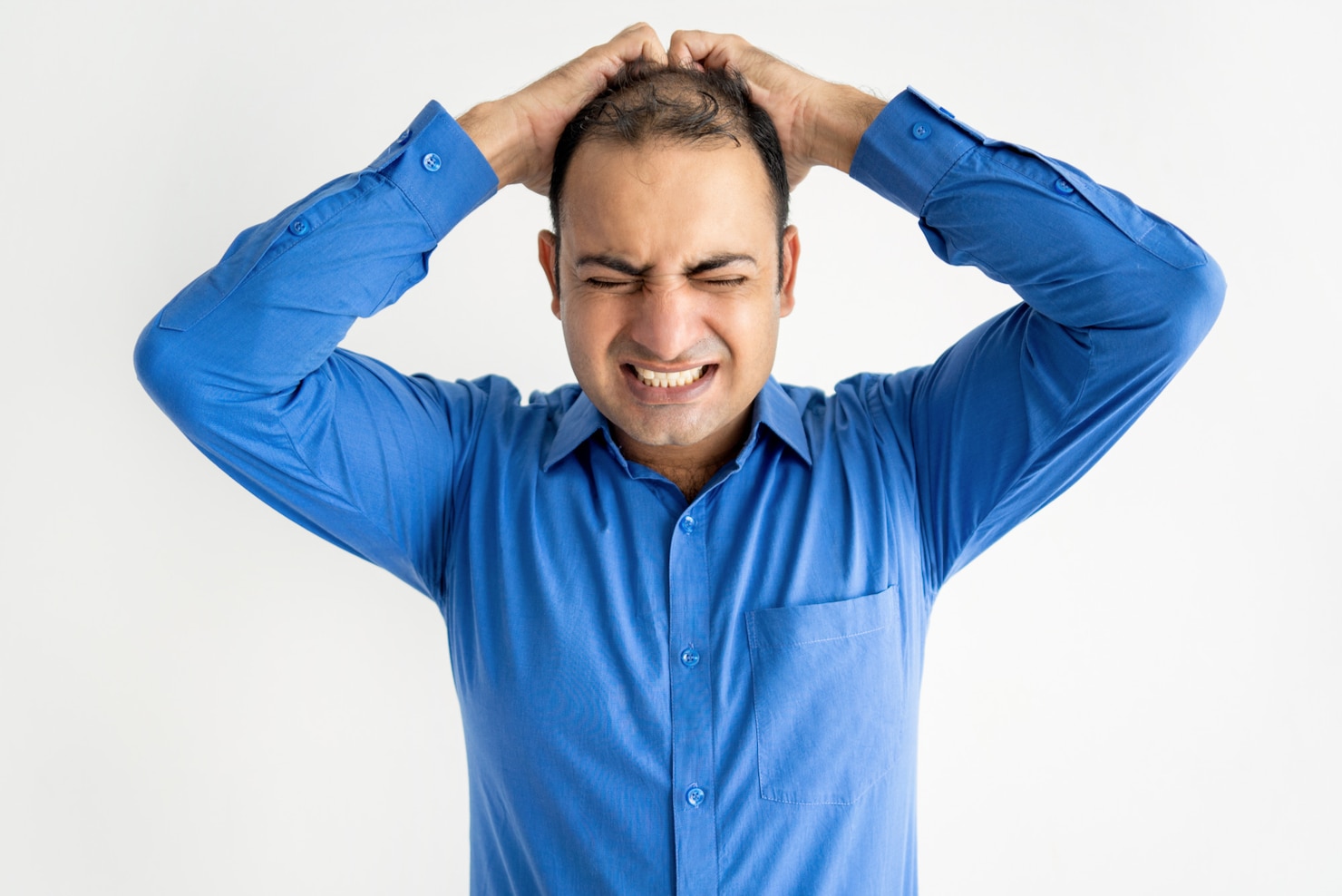
Are you frustrated with stunted hair growth and looking for effective solutions? Look no further! In this blog, we delve into the scientific facts and expert advice to help you understand the intricate process of hair growth and provide you with practical tips to boost its growth.
From the hair growth cycle to the impact of various factors, we uncover the secrets to how to fix stunted hair growth. Additionally, we explore the significance of maintaining a healthy scalp and the role of essential nutrients in promoting hair growth so you don’t have to spend hours scouring the internet with searches of “stunted hair growth,” “stunted hair growth in one spot,” and “hair stunted growth” anymore.
Get ready to unlock the secrets of hair growth and embrace the journey to vibrant, healthy hair once you discover how to fix stunted hair growth in this blog.
Understanding Hair Growth
The process of hair growth is a fascinating and intricate cycle that involves various factors. By delving into the intricacies of the hair growth cycle and understanding the factors that can influence it, you can gain valuable insights into promoting healthy and robust hair growth.
The Hair Growth Cycle

Image Source: FreePik
The hair growth cycle consists of three distinct phases: anagen, catagen, and telogen. During the anagen phase, which lasts approximately two to six years, the hair follicles actively produce hair. This is the phase of active hair growth, where the cells in the hair bulb divide rapidly, resulting in the formation of new hair strands.
Following the anagen phase is the catagen phase, a transitional stage that lasts for about two weeks. During this phase, the hair follicles shrink, and hair growth ceases. This transitional period prepares the follicles for the next phase.
The final phase of the hair growth cycle is the telogen phase, also known as the resting phase. TTThis phase sees the hair follicles enter a dormant state before shedding the existing hair strand. Shedding is a natural part of the hair growth cycle, with an average person shedding around 50 to 100 hairs daily.
Factors Affecting Hair Growth
Numerous factors can impact hair growth. One crucial factor is genetics. Your genetic makeup determines the length, thickness, and overall growth pattern of your hair. Additionally, age plays a role in hair growth, as hair tends to become thinner and more prone to shedding as you age.
Nutrition and diet also significantly influence hair growth. A balanced diet rich in essential nutrients, vitamins (such as biotin and vitamin D), and minerals (like zinc and iron) promotes healthy hair growth. On the other hand, a lack of proper nutrition can lead to hair loss and stunted growth.
External factors, such as stress, hormonal imbalances, and certain medical conditions, can affect the hair growth cycle as well. Stress-induced hair loss, for instance, occurs when the body experiences a significant amount of stress, leading to excessive shedding.
Key Takeaway:
Understanding the hair growth cycle and the various factors that impact it is crucial for maintaining healthy and vibrant hair. By nourishing your body with a balanced diet, managing stress levels, and addressing any underlying medical conditions, you can support optimal hair growth and overall hair health.Maintaining a Healthy Scalp

Image Source: FreePik
A healthy scalp is the foundation for lustrous and vibrant hair. Understanding the significance of a healthy scalp and adopting simple yet effective tips can help you maintain optimal scalp health and promote the growth of strong and beautiful hair.
Importance of a Healthy Scalp
A healthy scalp provides an ideal environment for hair growth. It nourishes the hair follicles, ensuring they receive the essential nutrients and oxygen needed for proper hair development. Additionally, a healthy scalp helps regulate sebum production, the natural oil that moisturizes and protects the hair. When the scalp is in good condition, it minimizes issues like excessive dryness, oiliness, itchiness, and dandruff, which can hamper hair growth and overall hair health.
Furthermore, maintaining a healthy scalp is crucial in preventing common scalp conditions such as dermatitis, psoriasis, and fungal infections. These conditions can cause discomfort, inflammation, and even hair loss if left untreated. By prioritizing scalp health, you can reduce the risk of such conditions and enjoy a more comfortable and pleasant hair care experience.
Tips for Maintaining a Healthy Scalp
To maintain a healthy scalp, consider the following tips:
Keep your scalp clean: Regularly cleanse your scalp and hair to remove dirt, excess oils, and product buildup. Use a gentle shampoo that suits your hair type and avoid harsh scrubbing to prevent scalp irritation.
Nourish your scalp:
Massage your scalp regularly to improve blood circulation and stimulate the hair follicles. You can use natural oils like coconut oil, almond oil, or jojoba oil to moisturize and nourish the scalp.Maintain a balanced diet:
A nutrient-rich diet promotes overall scalp health. Include foods rich in vitamins (such as A, C, and E), minerals (like zinc and selenium), and omega-3 fatty acids to support a healthy scalp and hair growth.Protect your scalp from harsh elements:
Shield your scalp from excessive sun exposure, cold weather, and environmental pollutants. Wear a hat or use SPF protection to minimize damage caused by UV rays.
Key Takeaway:
A healthy scalp is the cornerstone of beautiful and resilient hair. By prioritizing scalp health through regular cleansing, nourishment, a balanced diet, and protection from harsh elements, you can pave the way for vibrant and thriving hair. Remember, a healthy scalp leads to healthy hair.Essential Nutrients for Hair Growth

Image Source: FreePik
Providing your body with the necessary nutrients is vital for promoting healthy hair growth. By incorporating key nutrients into your diet and considering dietary sources and supplements, you can support optimal hair growth and enhance the overall health of your hair.
Key Nutrients for Hair Growth
Several essential nutrients play a significant role in promoting hair growth. These include:
Biotin:
Also known as vitamin B7, biotin is essential for the production of keratin, a protein that forms the structural foundation of hair. Biotin deficiency can lead to hair loss, so ensuring an adequate intake is crucial.Vitamin C:
This powerful antioxidant supports collagen production, which is essential for maintaining the integrity of the hair strands. Additionally, vitamin C aids in iron absorption, a mineral vital for hair growth.Iron:
Iron deficiency can contribute to hair loss. It is a key nutrient involved in the production of red blood cells, which carry oxygen and nutrients to the hair follicles.Omega-3 fatty acids:
Found in fatty fish like salmon and mackerel, as well as chia seeds and flaxseeds, omega-3 fatty acids help nourish the scalp and promote hair growth.Key Takeaway:
Ensuring an adequate intake of key nutrients like biotin, vitamin C, iron, and omega-3 fatty acids is crucial for supporting healthy hair growth. By incorporating nutrient-rich foods into your diet and considering supplements when necessary, you can provide your body with the building blocks it needs for vibrant and resilient hair. Remember, a well-nourished body promotes healthy hair.Lifestyle Factors and Hair Growth
Your lifestyle choices can have a significant impact on the health and growth of your hair. By understanding the relationship between lifestyle factors and hair growth and adopting healthy habits, you can support the vitality of your hair and achieve optimal growth.
Stress and its Impact on Hair Growth
Stress can be detrimental to your hair growth. When you experience high levels of stress, your body produces cortisol, a hormone that can disrupt the normal hair growth cycle. This can lead to hair thinning, shedding, and even hair loss. Finding effective stress management techniques such as exercise, meditation, or engaging in hobbies can help minimize the negative effects of stress on your hair.
Healthy Habits for Promoting Hair Growth
Incorporating healthy habits into your daily routine can support the growth and health of your hair:
Proper nutrition:
A balanced diet rich in vitamins, minerals, and antioxidants provides the necessary nutrients for hair growth. Include a variety of fruits, vegetables, whole grains, lean proteins, and healthy fats in your meals to nourish your hair from within.Regular exercise:
Physical activity improves blood circulation, including to the scalp, which promotes hair growth. Aim for at least 30 minutes of moderate exercise most days of the week.Good sleep:
Getting adequate sleep allows your body to regenerate and repair, including the hair follicles. Aim for 7-9 hours of quality sleep per night.Gentle hair care practices:
Avoid harsh chemical treatments, excessive heat styling, and tight hairstyles that can damage the hair follicles. Opt for gentle hair care products and techniques that minimize breakage and maintain the integrity of your hair.Key Takeaway:
Your lifestyle choices directly impact the growth and health of your hair. By managing stress effectively, adopting healthy habits such as proper nutrition, regular exercise, quality sleep, and gentle hair care practices, you can promote the growth of strong and vibrant hair. Remember, a holistic approach to wellness supports healthy hair growth.Conclusion
Hair growth woes? Now armed with this knowledge, you have the tools to fix stunted hair growth and embark on a journey to vibrant, healthy hair. Remember, nourish your body, prioritize scalp health, and embrace a holistic approach to wellness to unlock the secrets of healthy hair growth.


